Tech Updates

Recent advancements in AI and Cloud Computing
As the world of cloud computing continues to evolve, Microsoft Azure remains at the forefront, especially in the realm of artificial intelligence (AI). Azure’s AI offerings have seen significant advancements, providing powerful tools and services that cater to a diverse range of industries. In this Microsoft cloud compute update post, we would like to share with our readers the latest developments in Azure Cloud’s AI capabilities, highlighting key features and their implications for businesses and developers, including innovations in CPU technology like the Cobalt 100 and other cutting-edge processors.
In November 2023 Microsoft introduced their first inhouse built arm-based processor called Azure Cobalt 100 which was specifically designed to cater to the demands of AI and general compute .workloads on Microsoft Azure Cloud. It was announced alongside the Maia 100 AI Accelerator, which tailored for AI workloads, particularly large language models like OpenAI’s GPT.
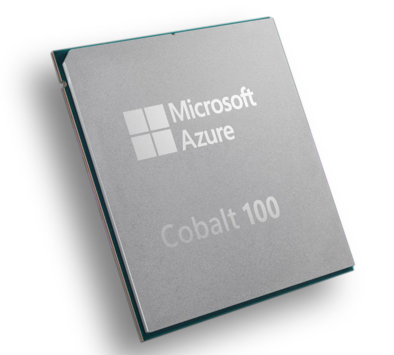
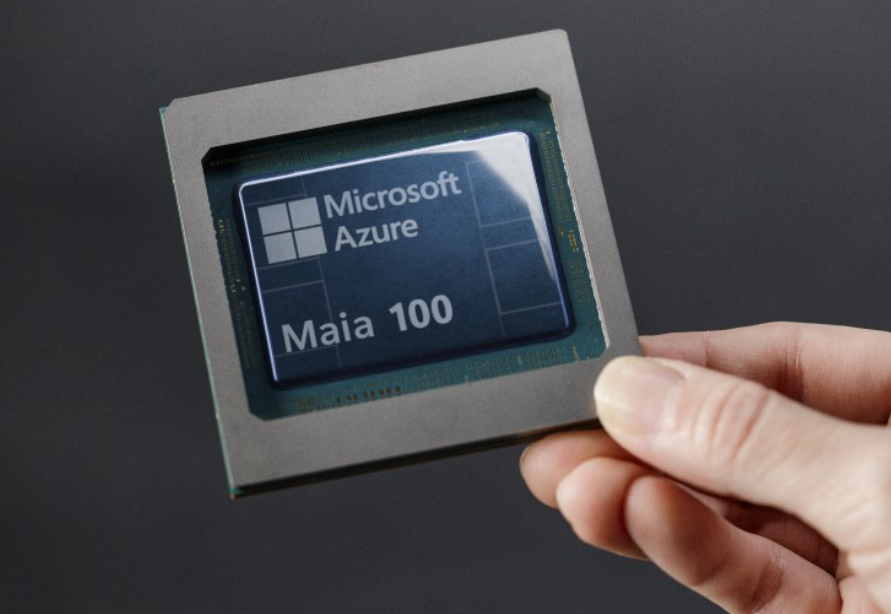
It is important to remember that even the new Azure Cobalt 100 VMs are available for free, your Azure subscription still will be billed for fees and applicable taxes associated with use of other Azure resources and services, such as disk storage, used in the deployment of these preview VMs.
These Arm-based VM’s are optimised for efficiency and performance when running general-purpose and cloud-native workloads and are suitable for various workloads, including web applications, microservices, and open-source databases. Offering both performance consistency and linear performance scaling.
The Maia 100 Accelerator is a first-generation chip with 105 billion transistors on 5nm process technology, one of the largest of its kind. The Maia 100 has innovations in silicon, software, network, racks, and cooling systems. This gives the Azure AI infrastructure customized end-to-end systems optimization for groundbreaking AI like GPT.
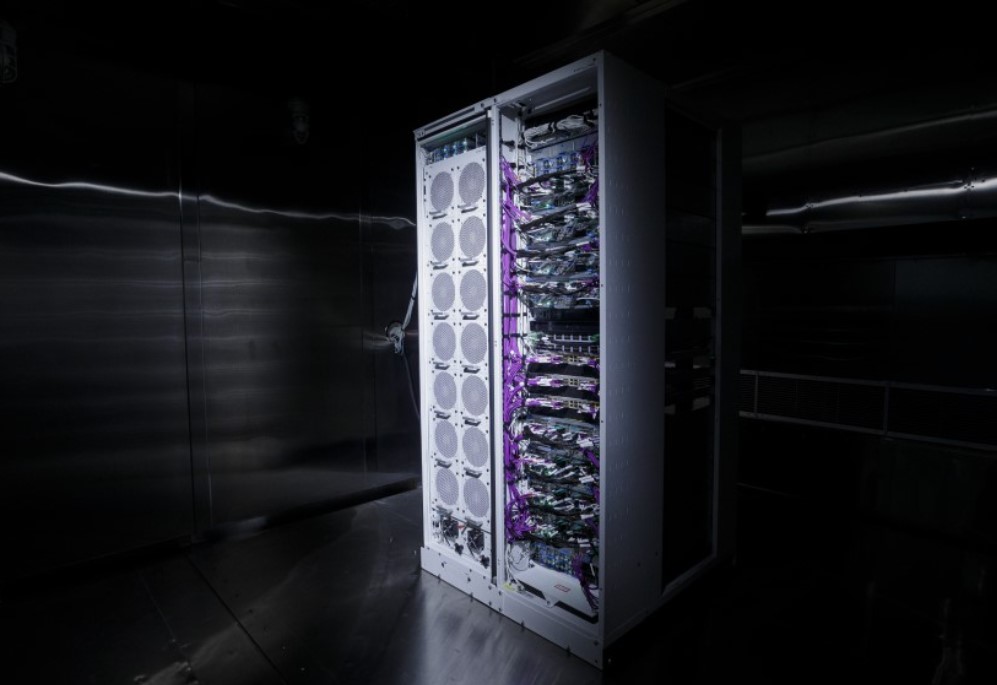
Both the Cobalt 100 CPU and Maia 100 AI Accelerator are expected to significantly enhance the performance and efficiency of the Microsoft Azure Cloud AI infrastructure. What is more, Microsoft is already developing the next-generation versions of both the Maia AI Accelerator and Azure Cobalt CPU. So, there some more exciting announcements on advancements in the Azure AI related technologies to look forward in near future.
In addition to Azure Cobalt 100 and Maia series Microsoft has also announced the general availability of availability of the ND MI300X VM series, making Microsoft the first cloud provider to bring AMD’s most powerful Instinct MI300X Accelerator to Azure. With the addition of the ND MI300X VM combining eight AMD MI300X Instinct accelerators, Azure is delivering customers unprecedented cost-performance for inferencing scenarios of frontier models like GPT-4.
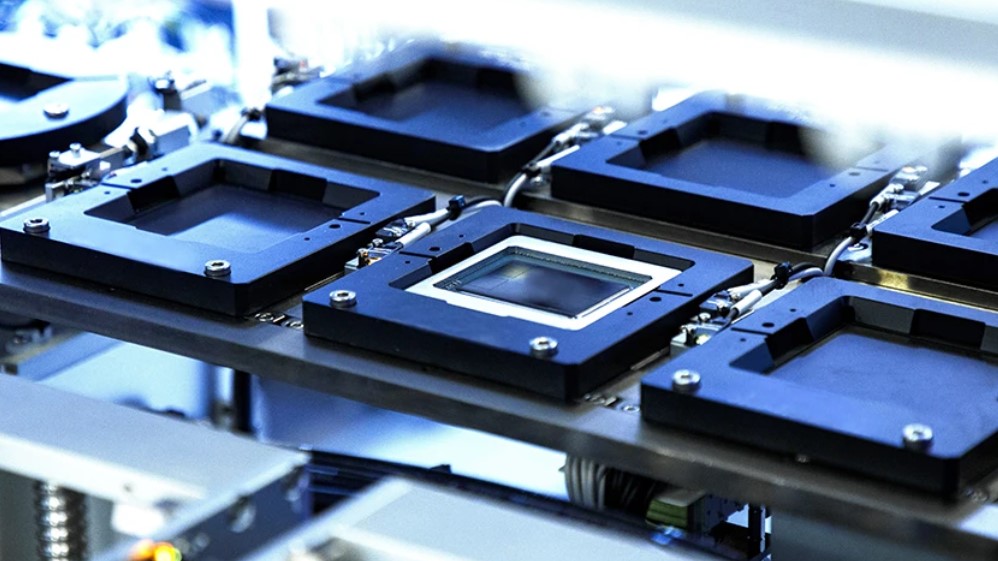
To keep pace with AI innovations the businesses also need other technologies to support he compute-intensive AI workloads they are trying to run in Azure.
Recently, Microsoft has announced a hollow core fibre (HCF), a new optical fibre that optimises Microsoft Azure’s global cloud infrastructure. It provides better network quality, lower latency and secure data transmission. It uses a special technology where light travels in an air core, which is faster and better than traditional fibre with a glass core. HCF is 47% faster than standard silica glass.
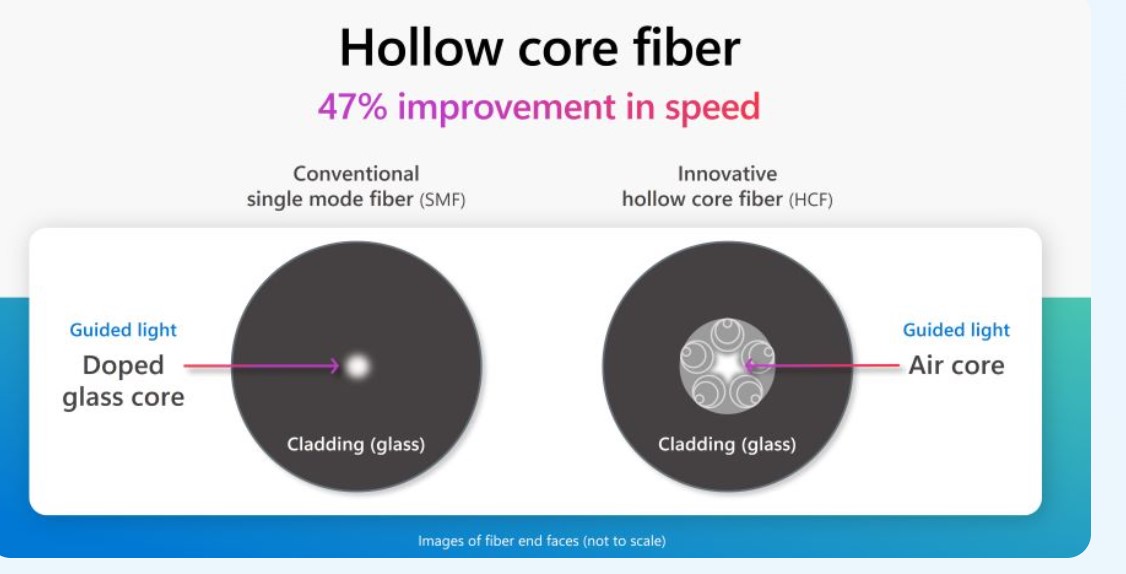
HCF technology was designed to enhance Azure’s global connectivity and cater to the evolving needs of AI and future workloads. This technology provides several advantages for end users, such as higher bandwidth, better signal integrity, and enhanced security. When it comes to AI infrastructure, HCF technology facilitates fast, dependable, and secure networking, thereby boosting the performance of AI tasks.
Conclusion
Reflecting on the recent developments in AI and related technologies, it is evident that Microsoft continues to make significant strides in enhancing cloud computing capabilities. The introduction of the Azure Cobalt 100 and Maia 100 AI Accelerator underscores Microsoft’s commitment to providing innovative solutions tailored for AI and compute-intensive workloads. These innovations not only improve performance and efficiency but also set the stage for future advancements in AI infrastructure.
Microsoft’s integrated approach, combining powerful processors, advanced accelerators, and innovative networking solutions like HCF, ensures that Azure remains a top choice for businesses and developers seeking robust and scalable AI solutions. As AI continues to evolve, Microsoft’s ongoing efforts in developing next-generation technologies and expanding their availability across more regions will undoubtedly play a crucial role in shaping the future of AI and cloud computing. With these advancements, businesses can look forward to enhanced performance, reduced costs, and the ability to leverage AI for a wide range of applications, driving innovation and growth in their respective fields.
